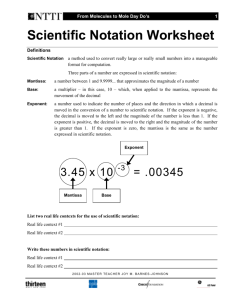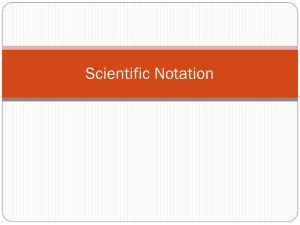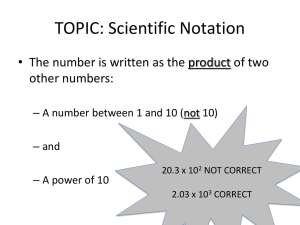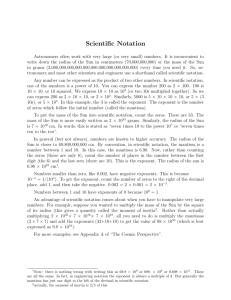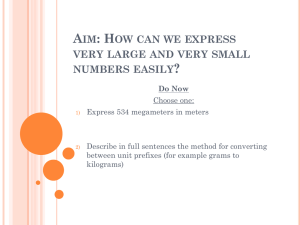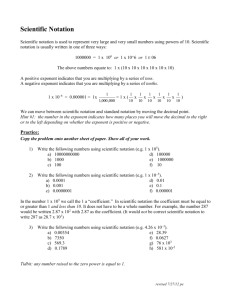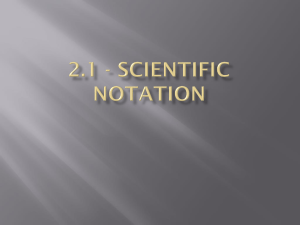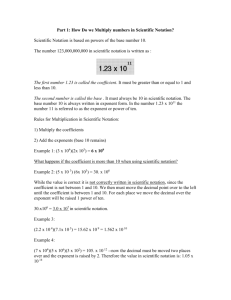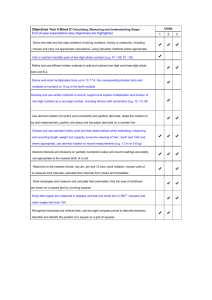Scientific Notation Worksheet: Practice & Examples
advertisement
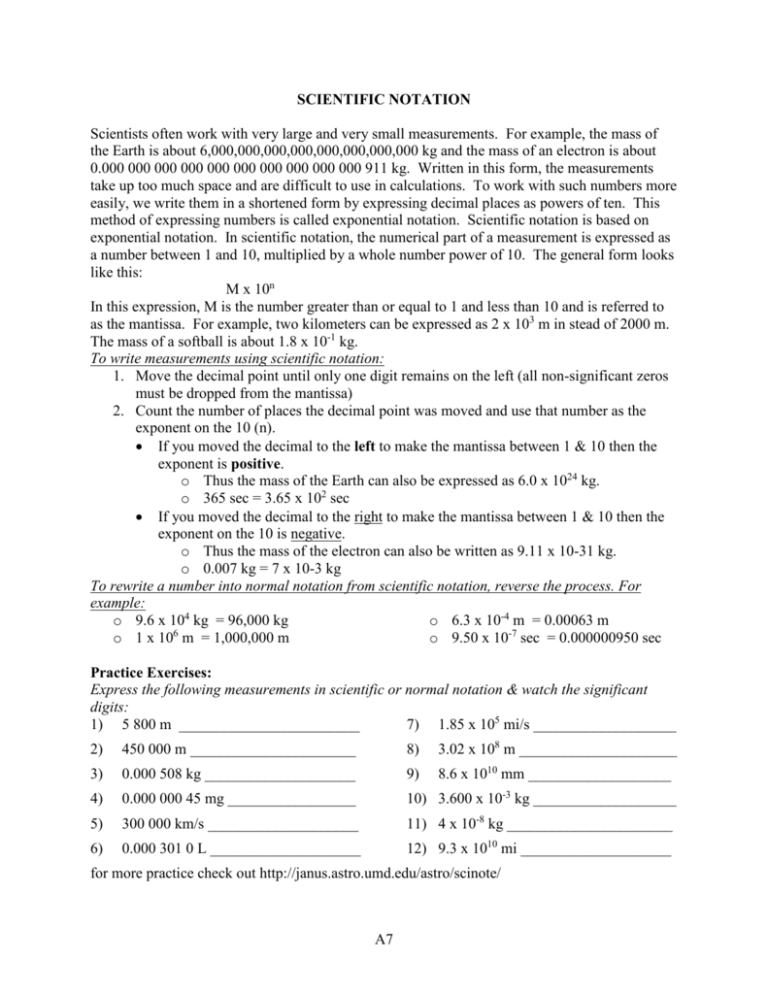
SCIENTIFIC NOTATION Scientists often work with very large and very small measurements. For example, the mass of the Earth is about 6,000,000,000,000,000,000,000,000 kg and the mass of an electron is about 0.000 000 000 000 000 000 000 000 000 000 911 kg. Written in this form, the measurements take up too much space and are difficult to use in calculations. To work with such numbers more easily, we write them in a shortened form by expressing decimal places as powers of ten. This method of expressing numbers is called exponential notation. Scientific notation is based on exponential notation. In scientific notation, the numerical part of a measurement is expressed as a number between 1 and 10, multiplied by a whole number power of 10. The general form looks like this: M x 10n In this expression, M is the number greater than or equal to 1 and less than 10 and is referred to as the mantissa. For example, two kilometers can be expressed as 2 x 103 m in stead of 2000 m. The mass of a softball is about 1.8 x 10-1 kg. To write measurements using scientific notation: 1. Move the decimal point until only one digit remains on the left (all non-significant zeros must be dropped from the mantissa) 2. Count the number of places the decimal point was moved and use that number as the exponent on the 10 (n). If you moved the decimal to the left to make the mantissa between 1 & 10 then the exponent is positive. o Thus the mass of the Earth can also be expressed as 6.0 x 1024 kg. o 365 sec = 3.65 x 102 sec If you moved the decimal to the right to make the mantissa between 1 & 10 then the exponent on the 10 is negative. o Thus the mass of the electron can also be written as 9.11 x 10-31 kg. o 0.007 kg = 7 x 10-3 kg To rewrite a number into normal notation from scientific notation, reverse the process. For example: o 9.6 x 104 kg = 96,000 kg o 6.3 x 10-4 m = 0.00063 m 6 o 1 x 10 m = 1,000,000 m o 9.50 x 10-7 sec = 0.000000950 sec Practice Exercises: Express the following measurements in scientific or normal notation & watch the significant digits: 1) 5 800 m ________________________ 7) 1.85 x 105 mi/s ___________________ 2) 450 000 m ______________________ 8) 3.02 x 108 m _____________________ 3) 0.000 508 kg ____________________ 9) 8.6 x 1010 mm ___________________ 4) 0.000 000 45 mg _________________ 10) 3.600 x 10-3 kg ___________________ 5) 300 000 km/s ____________________ 11) 4 x 10-8 kg ______________________ 6) 0.000 301 0 L ____________________ 12) 9.3 x 1010 mi ____________________ for more practice check out http://janus.astro.umd.edu/astro/scinote/ A7

